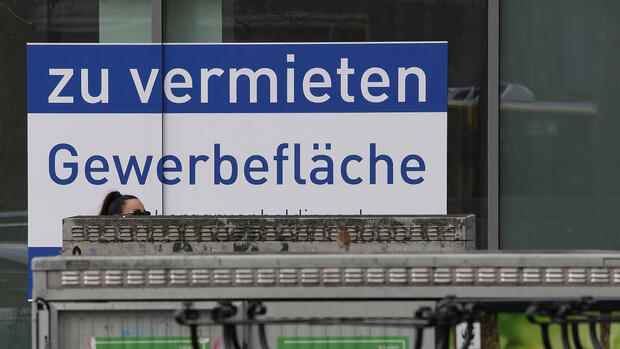After a long period of low insolvency figures, a trend reversal has set in.
(Photo: dpa)
Wiesbaden The Federal Association of Medium-Sized Businesses (BVMW) warns of a wave of bankruptcies in view of the sharp rise in energy costs. Federal managing director of the association, Markus Jerger, told the Handelsblatt: “A wave of insolvencies among small and medium-sized companies is a scenario that we now have to reckon with. Many companies have their backs to the wall and already don’t know how to cope with the higher costs.”
Jerger referred to a recent survey by his association. According to this, four out of ten companies answered that the sharp rise in energy prices alone posed an existential threat. “If you were to extrapolate the numbers for Germany, there would be 1.4 million threatened companies with 3.5 million existing companies in Germany,” said Jerger. “That shows the extent of the current crisis.”
The number of company bankruptcies rose in August. As the Federal Statistical Office announced on Monday based on preliminary data, 6.6 percent more companies filed for bankruptcy last month than in July.
In the first half of the year, the district courts had registered four percent fewer company bankruptcies than a year earlier.
Top jobs of the day
Find the best jobs now and
be notified by email.
The statisticians pointed out on Monday that the bankruptcy applications are often only included in the statistics with a time delay. The Leibniz Institute for Economic Research Halle (IWH) is now assuming that the numbers will continue to rise.
After a long period of low insolvency figures, a trend reversal has set in, explained IWH researcher Steffen Müller last week. The reasons for this are primarily sharply rising prices, for example for energy and problems in the supply chains. According to Müller, however, there is currently no talk of an imminent wave of bankruptcies.
CDU politician accuses federal government of “failing to provide assistance”.
The Federal Office now has final figures for the first half of the year. In the six months, the district courts reported 7113 corporate insolvencies, four percent fewer than a year earlier.
The courts estimated the probable claims of the creditors at almost 8.2 billion euros. In the first half of 2021, they were significantly higher at around 31.8 billion euros because there were more larger cases.
BVMW Federal Managing Director Jerger warned: SMEs are threatened with “permanent and possibly irreversible damage from the energy price explosion”. Therefore, the federal government must ensure relief across the board – and in fact “pragmatically and free of ideology in all areas”.
A “protective shield for small and medium-sized enterprises” is necessary. In addition, there is a need for aid programs for energy-intensive companies, a “commercial electricity tariff” and a reduction in electricity tax to the minimum EU requirement. The gas procurement levy is also “poison for the companies” in the current situation, emphasized Jerger.
The federal chairwoman of the SME and Economic Union (MIT) Gitta Connemann (CDU) calls for structural relief for the economy and employees due to the energy crisis.
>> Read also: Is there a wave of bankruptcies? These are the most important questions and answers
Every second company is already severely affected by the high energy prices and more than 84 percent of the companies expect to lose jobs. “The companies can’t call for help louder,” but only announcements came from the federal government, Connemann told the TV station Phoenix. “That borders on failure to provide assistance.”
State interventions
The CDU politician proposes state intervention to help energy suppliers who are in trouble, instead of asking all gas consumers to pay with the planned gas levy: “The gas levy leads companies to exit,” said Connemann. The government should now lower the tax on gas and the CO2 tax, since energy prices are the reason for the “rapid inflation”.
In order to avert a wave of bankruptcies as a result of the pandemic, the state had temporarily suspended the obligation to file for bankruptcy in the event of over-indebtedness or insolvency. Since May 1, 2021, the obligation to file for insolvency has again applied in full. There were exceptions until January 31, 2022 for companies that suffered damage from heavy rain or flooding last summer. Last year there were fewer company bankruptcies than ever before since the current insolvency code was introduced in 1999.
With agency material
More: The state as savior in every crisis? About the fatal error of the fully comprehensive policy

